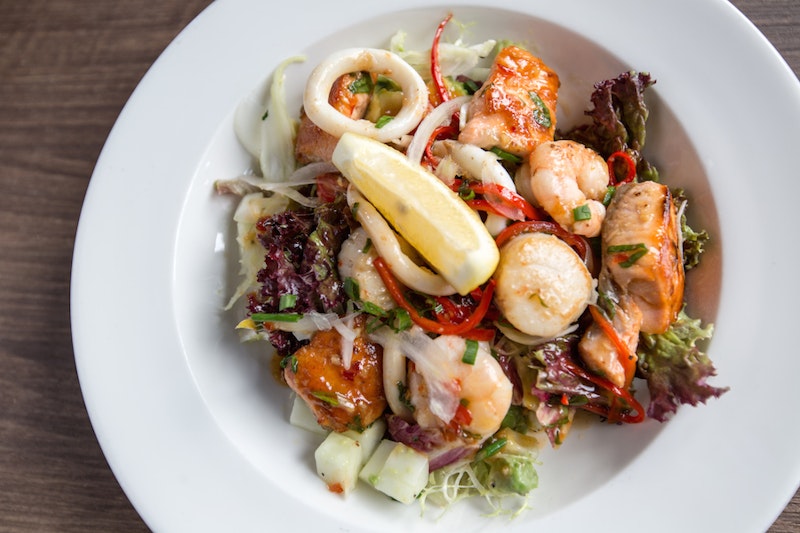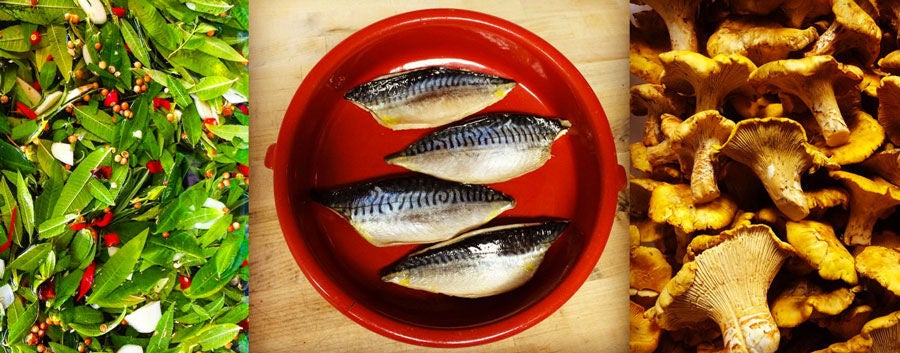You’ve probably heard of the Mediterranean diet and how it can help you keep your weight stable and live healthier and longer. The buzz first started in the 1990s and hasn’t let up since — in fact, more and more studies confirm the health benefits of traditional Mediterranean foods.
“The Mediterranean diet is one of the best researched for health benefits,” says Sara Baer-Sinnott, president of Oldways, a Boston-based nonprofit that promotes health through cultural food traditions. “It’s better for the environment, better for human health, and it’s delicious. I think people have to realize that healthy food can be delicious. It’s not a punishment to eat a healthy diet. I think it’s a way everybody could eat.”
If you’re not familiar with the Mediterranean diet, you’re in for a treat — this isn’t one of those fly-by-night fad diets, but the traditional cuisines of Italy, Spain, Greece, Morocco, and other countries that border the Mediterranean Sea, loved the world over for their delicious flavors.
Read on to learn why this food has such staying power with nutrition experts, and how you can take small steps to eat, and live, more like people in the Mediterranean traditionally do.
The basics
Although there’s some variety in different countries and regions of the Mediterranean, the food has a few things in common:
- Fruits and vegetables — lots of them. Nutritionists often refer to the Mediterranean diet as “the poor man’s diet.” People here eat what they can afford — whatever grows nearby and is in season. Vegetables form the cornerstone of every meal, and fruit features heavily in desserts.
- Beans and legumes like lentils, chickpeas, and fava beans, which are packed with fiber, protein, vitamins, and minerals.
- Whole grains, such as farro and bulgur (types of wheat) are a great source of complex carbs, fiber, vitamins, and minerals.
- Seafood is an important source of protein. Fish like sardines, tuna, and salmon also contain heart-healthy omega-3 fatty acids.
- Red meat and dairy — but only a little. Mediterranean cuisines often use red meat as a seasoning rather than as the star of the meal. Ditto for dairy — their cheeses are so flavorful, you only need a little.
- Olive oil as a main source of fat, used to cook and dress salads. Extra virgin, the least processed variety, retains the most nutrients and may be good for regulating blood sugar and cholesterol levels.
- Nuts such as almonds, walnuts, and pistachios, are a source of healthy fats, protein, minerals, and other nutrients.
- Herbs and spices like garlic, thyme, and cumin, whose rich flavors and aromas allow them to replace some salt — and they’re loaded with minerals and antioxidants to boot.
- A little wine. In European countries, wine is part of daily life. Studies show that moderate drinking (up to a glass a day for women and two glasses for men) can benefit the heart.
The Mediterranean diet is more than just a diet, though — it’s a way of life. Besides choosing quality ingredients, people in Mediterranean countries also:
Enjoy their food. People in Mediterranean countries tend to sit down and enjoy meals with loved ones, not in front of their laptops or on their way out the door. It’s also rare for restaurants or cafes to offer food to go. As a result, people savor their food, leaving them satisfied and less likely to overeat.
Eat with others. Studies show that making meals a social event can reduce stress and might help you live longer. People in Ikaria, Greece, and Sardinia, Italy — identified as Blue Zones, regions with high concentrations of people who live to 100 or more — regularly eat with friends and family.
Watch their portions. To stretch out food budgets, it’s helpful to cut out red meat and other pricey foods, but also to eat less in general. Lunch is often the biggest meal in these countries — enough fuel for the rest of the workday, no afternoon snack needed. Dinner is often small and late.
Stay active. Even as they get older, people in these countries stay active by walking, cooking, gardening, and doing housework. It helps to live in walkable towns and cities with good weather year-round.








